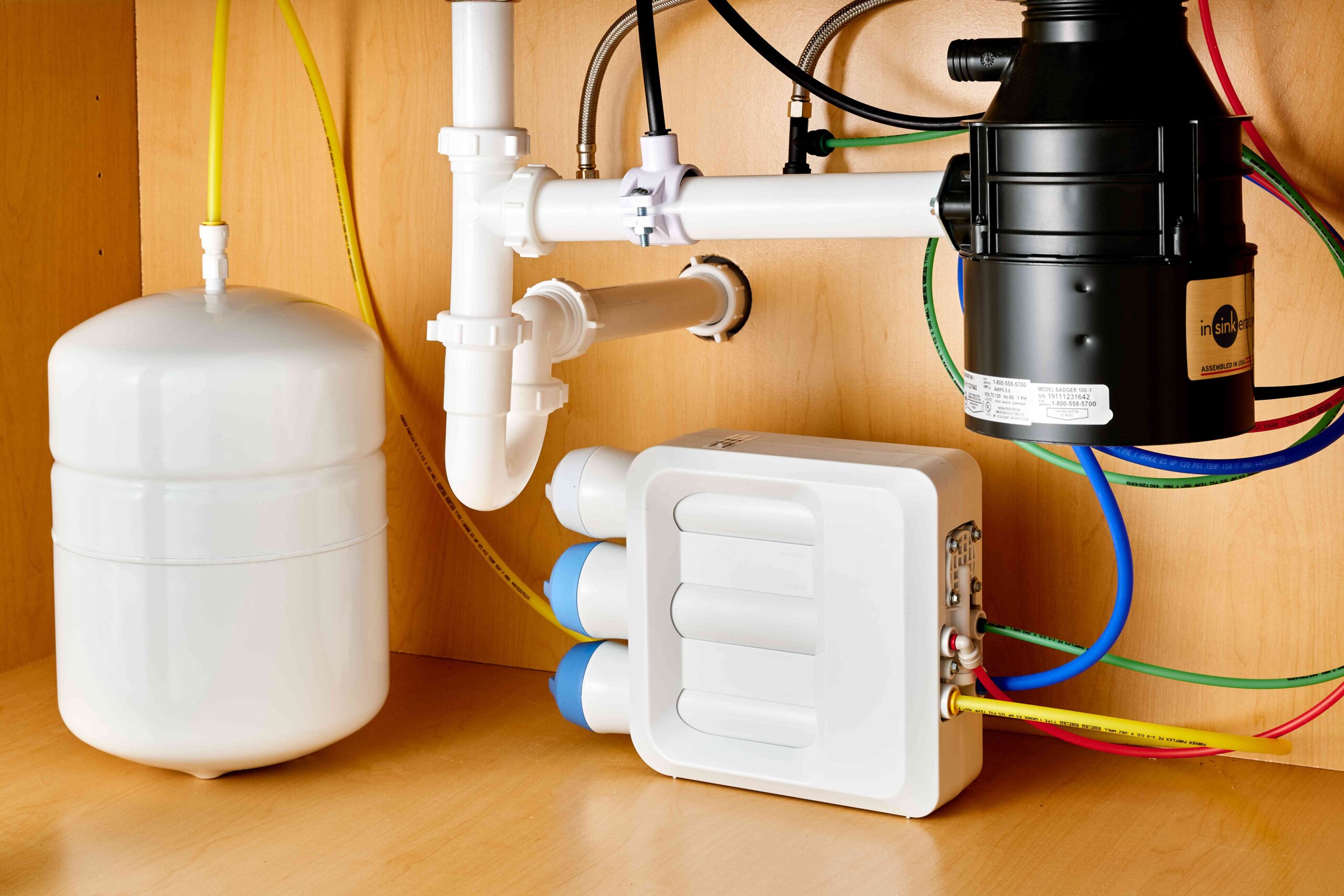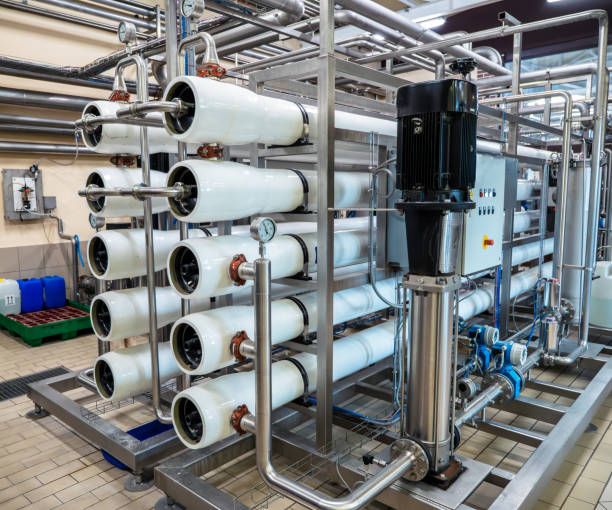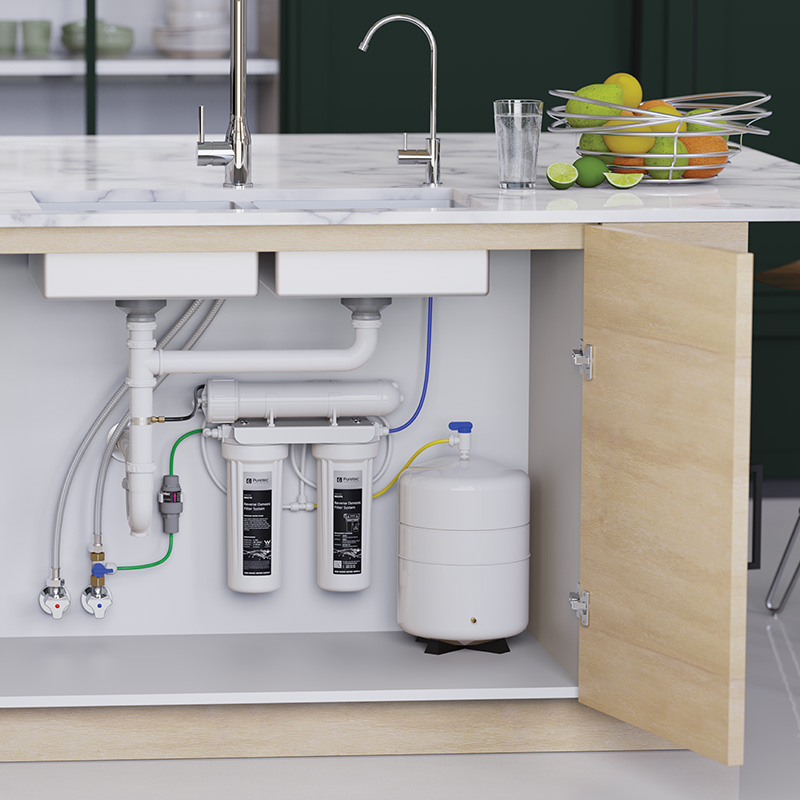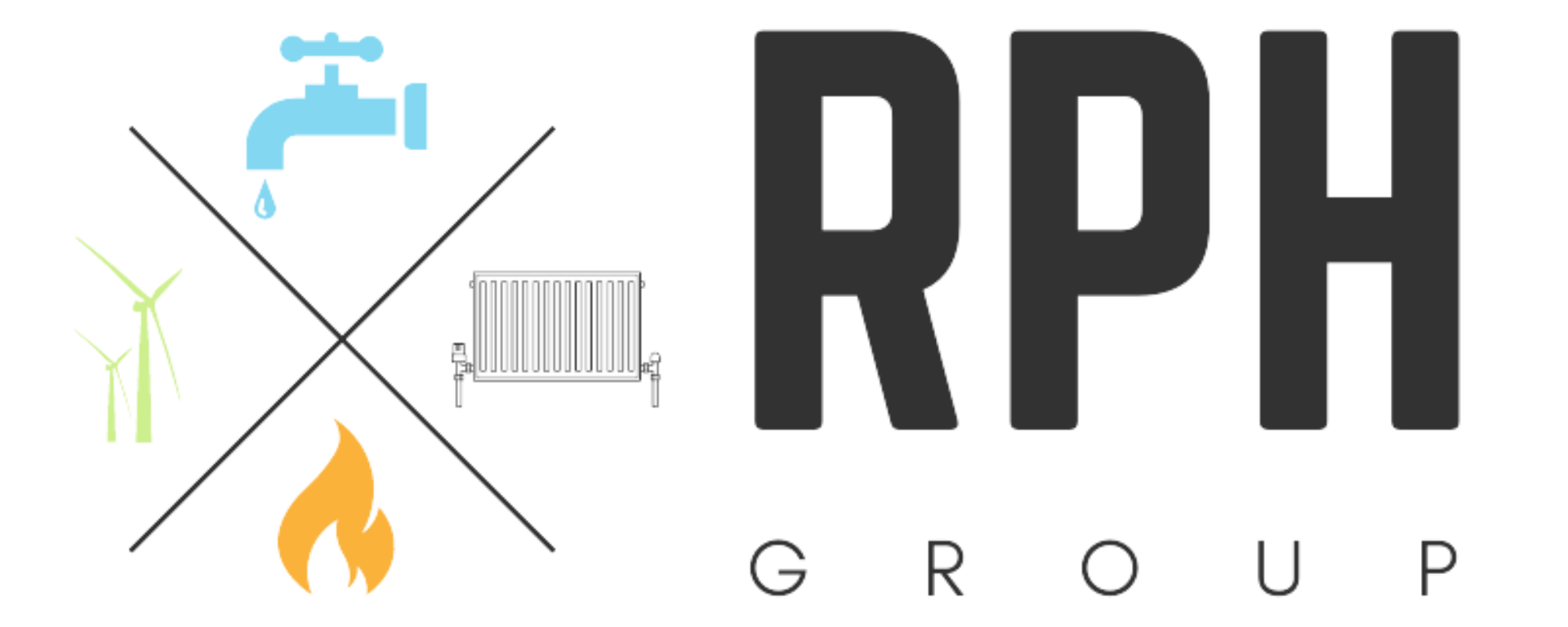Reverse Osmosis
Improve your water quality with reverse osmosis systems from R.P.H Group. We install high-performance filtration for cleaner, better-tasting water at home or work.
We offer both standalone systems and installations as part of wider plumbing or kitchen upgrade work. Get in touch to explore how reverse osmosis could benefit your setup.



Reverse Osmosis Services
Reverse Osmosis System Installation
Advanced filtration systems are fitted to remove contaminants and improve water taste and purity.
Under-Sink Water Filtration
Compact under-sink filters installed for easy access to clean, filtered drinking water.
System Maintenance & Servicing
Regular servicing to keep your water filtration system running efficiently and effectively.
Water Quality Testing & Filter Replacements
Professional water testing and timely filter replacements to maintain high-quality water standards.
All You Need to Know About Reverse Osmosis
Reverse Osmosis System Installation
Installing a reverse osmosis (RO) system is one of the most effective ways to ensure your home or business has access to clean, pure water. At RPH Group, we specialise in professional RO system installations that are tailored to meet your exact water needs. Whether you’re dealing with hard water, chlorine, heavy metals, or other contaminants, our systems are designed to significantly improve water quality at the point of use.
Our team starts by carrying out a full water assessment to understand the unique properties of your supply. We then recommend the most suitable system based on your needs, budget, and desired flow rate. Our qualified technicians install every component with precision—from the pre-filters to the membrane housing and storage tank. We also take care of pressure regulation and drainage integration to ensure optimal performance.
All our installations comply with the latest plumbing regulations and are completed with minimal disruption to your property. Whether you want a system for your kitchen tap or need a larger-scale solution for commercial use, we can help. Once installed, we’ll walk you through how the system works, and how to get the most out of it.
Clean, great-tasting water is just the beginning. With a properly installed RO system from RPH Group, you’ll enjoy peace of mind knowing your family or customers are drinking water that’s free from harmful contaminants.
Under-Sink Water Filtration
Under-sink water filtration systems offer a discreet yet powerful solution to improve the quality and taste of your tap water. At RPH Group, we install high-performance reverse osmosis systems that fit neatly beneath your kitchen sink, giving you access to purified water without the bulk of a countertop unit or the cost of bottled alternatives.
These systems work by forcing water through a semi-permeable membrane, which effectively removes up to 99% of impurities including chlorine, fluoride, heavy metals, pesticides, microplastics, and even pharmaceutical residues. What’s left is crisp, clean water available on demand straight from a dedicated tap.
Our under-sink RO solutions are ideal for homeowners, renters (with landlord permission), or small offices looking to reduce environmental impact while improving health and hydration. The compact design means it won’t take up unnecessary space, and modern systems now come with quick-change filters, leak detection, and flow restrictors for efficiency.
We’ll assess your plumbing layout, water pressure, and space constraints before installation to ensure the best fit. The end result? Better tasting teas, coffees, and meals prepared with pure water—plus no need to carry heavy water bottles again.
When paired with regular maintenance (which we also provide), an under-sink RO system can serve you reliably for years. It’s a smart, low-profile investment for households looking to prioritise both health and convenience.
System Maintenance & Servicing
Like any high-performance system, reverse osmosis units require regular maintenance to stay effective. At RPH Group, we offer professional servicing packages that keep your RO system running at its best—ensuring long lifespan, efficiency, and consistently high water quality.
Maintenance includes a thorough inspection of your unit’s components such as pre-filters, membranes, storage tanks, and tubing. Over time, filters become saturated with the very contaminants they’re designed to remove—so replacing them at proper intervals is essential. We also check for any leaks, blockages, or drops in pressure that may indicate wear or system inefficiency.
Depending on your system’s usage and water quality, most RO units require filter replacements every 6–12 months and membrane replacement every 2–3 years. We track these intervals for you and provide reminders, so you never miss a critical service window.
Our team can also perform performance diagnostics, including total dissolved solids (TDS) testing, to ensure the water being produced remains within safe and healthy parameters. If any issues are found, we’ll repair or upgrade parts as needed using trusted, manufacturer-approved components.
We understand how important clean water is for your health and peace of mind. With our routine servicing plans, you can rest assured your investment is protected—and that your RO system will continue providing top-tier water for years to come.
Water Quality Testing & Filter Replacements
Before installing or maintaining a reverse osmosis system, it’s essential to know exactly what’s in your water. That’s why RPH Group provides comprehensive water quality testing as part of our RO services. We analyse key parameters like hardness, pH level, total dissolved solids (TDS), chlorine content, heavy metals, and microbial contamination to give you a clear picture of what needs to be filtered out.
This data allows us to tailor the filtration system precisely to your needs, ensuring that your RO unit is removing the right contaminants without unnecessary over-filtration, which can reduce efficiency or waste water.
Even the best systems need regular filter replacements to remain effective. RO units typically include multiple stages of filtration, such as sediment filters, carbon filters, and the central RO membrane. Each has a lifespan and should be replaced according to manufacturer guidelines to maintain optimal performance.
We offer convenient filter replacement services—either as one-off visits or part of a scheduled maintenance plan. Our team uses only high-quality filters that meet or exceed OEM standards, and we dispose of the old ones responsibly.
We also test your water post-filtration to ensure that everything is working as it should be. Whether you’re experiencing strange tastes, reduced flow, or just want reassurance that your water is still pure, our testing and replacement service has you covered.
With RPH Group, you get more than just filtration—you get confidence in every drop.
Womens Health Information
Endocrine-Disrupting Chemicals (EDCs)
Tap water can contain trace amounts of pharmaceuticals, pesticides, and industrial byproducts that mimic hormones. These EDCs can interfere with the female hormonal system, affecting fertility, menstrual cycles, and even increasing breast cancer risk.
Chlorine and Chlorination Byproducts
Tap water is disinfected with chlorine, which can form harmful byproducts like trihalomethanes (THMs). These have been linked to reproductive issues, miscarriage, and low birth weight in pregnant women.
Fluoride Controversy
While fluoride is added to water to prevent tooth decay, excess intake has been linked to thyroid dysfunction, especially in women, who are more prone to hypothyroidism.
Heavy Metals (Lead, Copper, etc.)
Old pipes and infrastructure can leach metals into water. Lead exposure, even in small amounts, is particularly harmful to pregnant women and can lead to developmental issues in babies. Copper can also disrupt gut and liver health.
Microplastics
Tap water may contain microplastics that have made their way into water systems. These particles may carry toxins or leach synthetic chemicals, with possible long-term impacts on hormones, fertility, and inflammation.
Nitrates and Fertiliser Runoff
In agricultural areas, tap water may be contaminated with nitrates. High nitrate exposure has been linked to thyroid problems and may increase the risk of some cancers—more significant in women due to their hormonal sensitivity.
Aluminium
Some municipal systems use aluminium-based compounds for water treatment. Long-term exposure has been investigated for links to Alzheimer’s disease, and women are statistically more affected by dementia.
Bacterial or Viral Contamination
Occasional contamination (e.g. from sewage leaks, floods, or poor maintenance) can introduce pathogens like E. coli or Legionella. Women with autoimmune disorders or weaker immune systems may be more vulnerable to such infections.
Estrogenic Compounds from Oral Contraceptives
Traces of synthetic estrogens from flushed oral contraceptives can remain in the water supply. Chronic exposure to these estrogens may alter natural hormone balance in women.
PFAS (“Forever Chemicals”)
Per- and polyfluoroalkyl substances are found in some water systems and are linked to immune dysfunction, fertility issues, and hormonal disruption. Women may be more affected due to reproductive health vulnerabilities.
Mens Health Information
Testosterone Disruption from Endocrine Disruptors
Tap water may contain hormone-disrupting chemicals (like BPA, atrazine, and phthalates) that mimic estrogen. These compounds have been shown to lower testosterone levels and negatively impact male reproductive health.
Fertility Problems from Pesticide Residue
Some pesticides and herbicides, even in trace amounts in drinking water, have been linked to reduced sperm count, motility, and quality in men.
Fluoride and Testosterone Suppression
Some studies suggest that high fluoride levels may be associated with lower testosterone production and reduced fertility in males, especially in areas with over-fluoridated water.
Heavy Metal Toxicity (Lead, Mercury, Arsenic)
Men exposed to lead or arsenic through old pipes or groundwater contamination may experience lowered sperm quality, kidney strain, and cardiovascular damage—all of which affect overall male vitality and longevity.
Chlorine and Oxidative Stress
Chlorine, used to disinfect tap water, creates byproducts like chloroform and trihalomethanes, which increase oxidative stress in the body and can damage DNA—posing long-term risks for prostate and colon health in men.
Microplastics and Estrogenic Load
Men may unknowingly ingest microplastics carrying synthetic chemicals that increase estrogenic burden, contributing to “feminisation” effects like reduced libido, weight gain, and gynecomastia (male breast tissue development).
PFAS Exposure (“Forever Chemicals”)
These persistent chemicals, found in firefighting foam and industrial runoff, are linked to testicular cancer, reduced sperm quality, and hormone imbalance in men.
Aluminium and Cognitive Decline
Chronic aluminium exposure—often from tap water treated with aluminium sulfate—has been investigated for links to neurodegenerative diseases. Men, who statistically avoid early diagnosis, may suffer more severe progression.
Thyroid Imbalance from Nitrates
High nitrate levels from fertiliser runoff can inhibit iodine uptake and affect thyroid function, which is closely tied to male metabolism, energy levels, and mood.
Pathogens and Gut Health
Tap water occasionally harbours bacteria, viruses, and parasites. Poor gut health in men is increasingly linked to systemic inflammation, poor nutrient absorption, and mental health issues like brain fog and anxiety.


